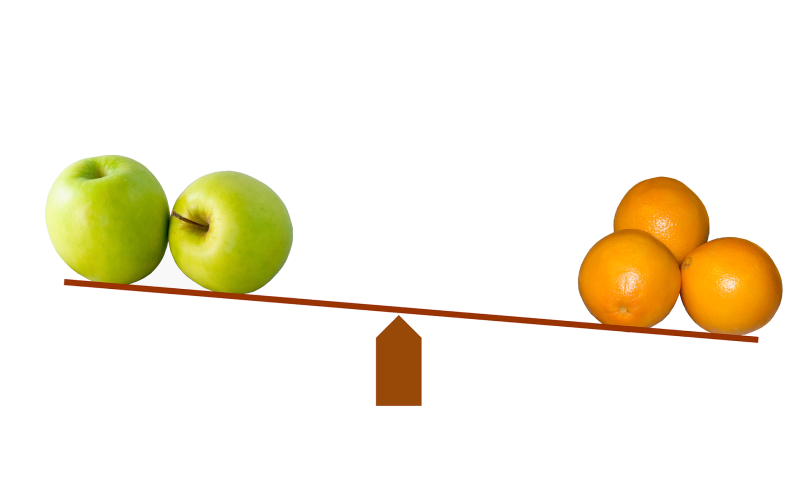Will Upgrading My Receiver Upgrade My Sound
No one likes to waste money. When they have AV gear that works, buying replacements better come with some perks. You should have access to more features, things should be more convenient, or your system should sound better. Sure, some people just want the latest and greatest, but most of us want to know that our purchase is giving us some sort of improvement. AV receivers are a common concern. They tend to last for a long time so when someone thinks about upgrading their AV receiver, they often wonder if a new one will sound better.
The answer is complicated. Depending on the age of your older receiver, you might experience better sound quality from newer and more linear amplifiers. But, for most people, the amplifier sections aren’t going to make much of a sonic difference. But you still might find that your new, upgraded AV receiver sounds better than your old one. Here are some reasons why.
Why You Might Hear a Difference that Doesn’t Exist
All things being equal, nearly every AV receiver should sound nearly identical. Amplifiers are usually designed to be very linear and free from coloration. Decoders of the different sound and surround codecs are standardized and universal. If you have your new, upgraded receiver in the same configuration with the same speakers in the same room as your old receiver, it should sound the same. But there are some reasons why all that might be true, but you still hear a difference.
Psychology
One of the main reasons you may think your upgraded AV receiver sounds better than your old one is simply because that is your expectation. You wouldn’t have upgraded if you didn’t think it would sound better, therefore you hear a difference. The reality is that there are lots of reasons why those differences may occur (read on for some examples), but you are going to attribute them to the upgrade. If it makes you feel better about the money you spent, that’s fine.

Comparing Apples to Oranges
Often with our AV receivers, we set them up and then do little more than controlling the volume and power from that point. Why would we? We ran it through the room correction, set up our universal remote, and ensured that each input was on your preferred upmixer/decoder. When you installed your brand new upgraded AV receiver, did you set all those sound and upmixing settings the same? Did you select the same crossover? Did you move any speakers (or have you moved any speakers since you last ran your room correction)? Are you hearing a sonic difference because the new AV receiver sounds “better” or is it because you have it set differently?
Some Real Differences
That’s not to say that there is never a reason to upgrade your AV receiver to get better sound. Technology does advance over time and you’ll find a ton of new features that a new receiver will have that your old one would not. New HDMI gaming features, object-based audio, and tons of streaming and convenience features just to name a few. Here are some features that may make your upgraded AV receiver sound better than your old model.
Access to Codecs
If you really are rocking an old receiver, you may simply not have access to certain codecs. We’re not just talking about Atmos and DTS:X, but other codecs as well. If your receiver is so old that it doesn’t have access to the lossless audio formats, the improvement of the sound from your upgraded AV receiver might just be that you have access to better codecs. Along with these codecs, we’d expect there to be real differences in the quality of the sound as well as the quality of the mix.

Upmixing
Upmixing is the process of taking sound meant for a certain number of speakers and spreading it out over a greater number of speakers. Taking a stereo signal and spreading it around a 5.1 system for example. Or upmixing a surround mix to utilize overhead speakers. The thing is that Dolby, DTS, THX, and others have been improving their upmixing algorithms for years. Your new upgraded AV receiver may sound better because the upmixing is simply more advanced. This makes the upmixing sound more natural and convincing. If you are someone that often utilizes upmixing (you didn’t install all those speakers NOT to use them!), then you may be hearing a sonic improvement.
Room Correction
Room correction programs have been slowly improving over the last dozen or so years. We went from fairly rudimentary to extremely powerful over that time. If your old receiver was rocking an earlier version of a room correction program (or no room correction at all), the sound improvements you are hearing with your upgraded receiver could be due to better correction. This is not just possible, but extremely likely. Even more so if you’ve optimized your room for sound.
Take Away
If you are upgrading a recent receiver with the latest model, the sound gains you can expect are going to be pretty marginal. Yes, you may get upgraded room correction, access to new features, and the latest HDMI standard. These can all make your experience with your receiver better. But sound quality improvements won’t be huge. This doesn’t mean you shouldn’t upgrade. It just means you need to upgrade for the right reasons. If you are lacking access to audio or video codecs, or your current receiver is just not compatible with a feature or capability you really want, upgrade away.



Great article Tom!
Thanks!